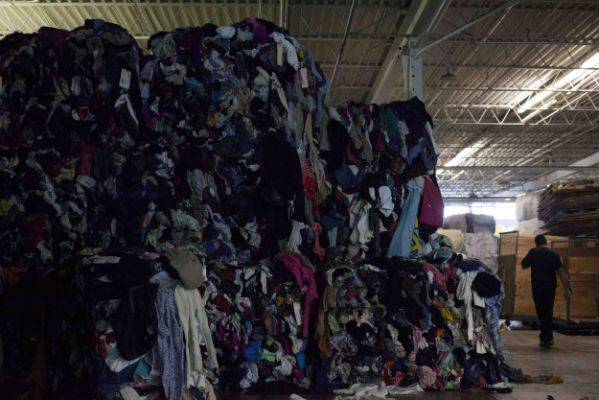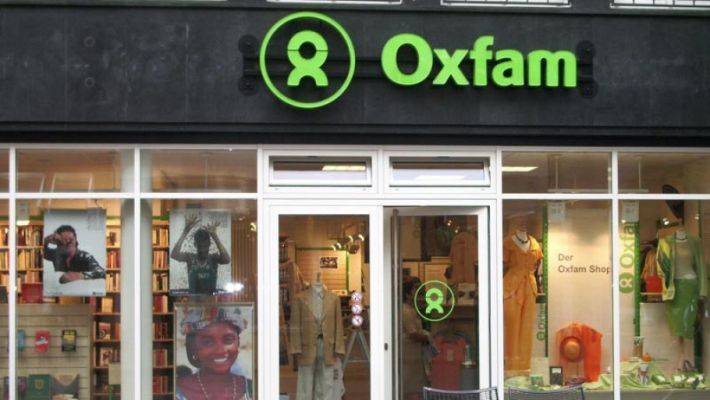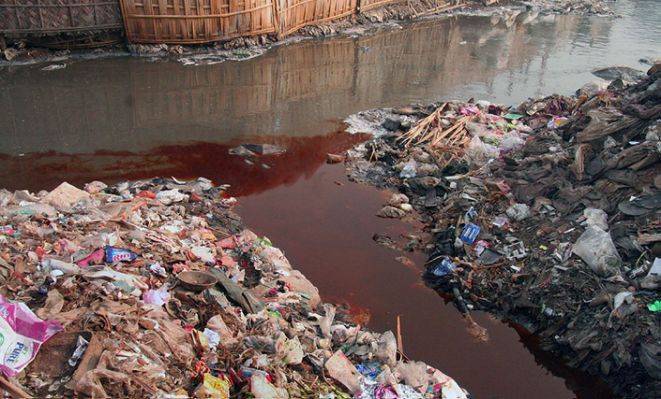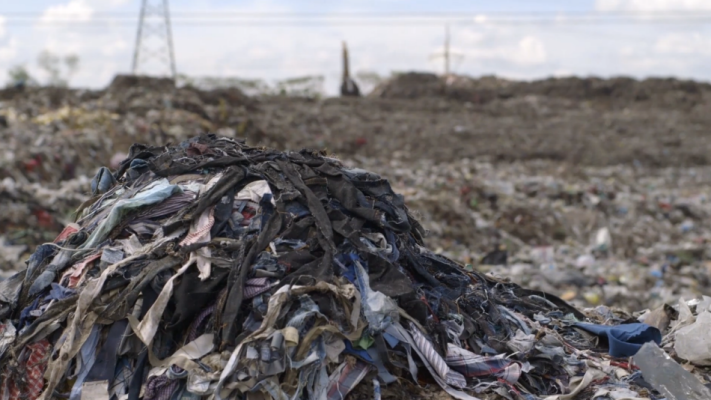 It’s a terrifying notion but new clothes bought in the UK produce more carbon emissions per minute than driving a car around the world six times.
It’s a terrifying notion but new clothes bought in the UK produce more carbon emissions per minute than driving a car around the world six times.
It is estimated that more than two tonnes of clothing are bought each minute in the UK. That produces nearly 50 tonnes of carbon emissions – the same as driving 162,000 miles in a car.
Emissions from clothes bought in the UK every second are equivalent to driving a car from London to the Costa del Sol and back. And per hour this equates to driving around the world 360 times.
 Buying one new white cotton shirt produces the same amount emissions as driving a car for 35 miles. The is based on a 100 per cent cotton shirt with a net weight of 220 grams, which amounts to 10.75kg of CO2 and other greenhouse gases.
Buying one new white cotton shirt produces the same amount emissions as driving a car for 35 miles. The is based on a 100 per cent cotton shirt with a net weight of 220 grams, which amounts to 10.75kg of CO2 and other greenhouse gases.
An item of clothing could travel 21748 miles – from a cotton field in the U.S, to production units in Bangladesh, to the shipment of the product to Germany and finally to the customer.
Despite these huge figures, a study of 1,000 British adults found more than half – 53 per cent – are not aware fast fashion is damaging to the environment.
 The study was commissioned by Oxfam for its Second Hand September campaign, where consumers pledge not to buy anything new for the whole month.
The study was commissioned by Oxfam for its Second Hand September campaign, where consumers pledge not to buy anything new for the whole month.
In one month alone the emissions from new clothes bought are greater than those from flying a plane around the world 900 times. This is the amount of emissions the nation could save if we all took part in Second Hand September.
Not only is the textile industry one of world’s major polluters, many of its products are thrown away. Each week, 11 million garments end up in landfill in the UK. To keep prices low, throwaway fashion is made by garment workers often from poor communities, and paid below the living wage.
 The statistics produced by Oxfam are based on lifetime emissions for new clothing bought in the UK, including sourcing raw materials, manufacturing, production, transport, washing and disposal. Oxfam’s says the poorest people in the world who did the least to cause climate change are suffering most.
The statistics produced by Oxfam are based on lifetime emissions for new clothing bought in the UK, including sourcing raw materials, manufacturing, production, transport, washing and disposal. Oxfam’s says the poorest people in the world who did the least to cause climate change are suffering most.
The richest 10 per cent of world are responsible for around 50 per cent of global emissions, while the poorest half are responsible for 10 per cent.
 The statistics also found the carbon footprint from new clothes we buy every year as a nation is more than if all 66 million of us flew to Malta for a holiday.
The statistics also found the carbon footprint from new clothes we buy every year as a nation is more than if all 66 million of us flew to Malta for a holiday.
In 2016 it was estimated 1,130,000 tonnes of clothing were purchased in the UK – an increase of 200,000 tonnes from 2012. This results in 94,166 tonnes of clothing being bought per month.
The study of Brits also found the average adult spends £27 a month in fast fashion outlets and two items are currently owned which remain unworn. One sixth own as many as five unworn items. But worryingly, three in 10 said that although they are shocked at how much damage fast fashion has on the environment, they probably won’t change their habits.
And almost one in 10 admitted they are ‘not bothered’ about the impact their shopping has on the environment. However, over one third said they are shocked and will change the way they purchase clothes.
